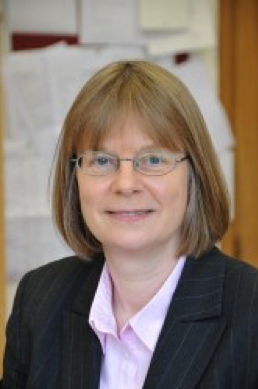
Date:
Location:
Speaker:
ABSTRACT:
In recent years the group in Cambridge has focused on extending the application of magnetic resonance to the study of a wide range of chemical engineering research questions. Recently, the work has followed two main themes: (i) building process environments that operate inside the superconducting magnet so that we can study systems under realistic process conditions, and (ii) exploring the opportunities to apply undersampling methods in data acquisitions so that we can reduce data acquisition times and enable data acquisition at higher spatial resolution.
Operando studies of catalytic processes
The main focus of our work under process operating conditions is in the field of heterogeneous catalytic processes. The motivation is to understand catalytic behavior, and hence gain insight into catalyst design and optimal process operating conditions. As part of this work we now measure quantities such as molecular diffusion as the catalytic process is occurring. Such measurements provide values which can be compared with the results of correlations and numerical simulations. The aim is not to replace such numerical tools but to test their validity and help improve their predictive power. Some results from the first two reactions that we have studied will be presented: ethene oligomerization and Fischer-Tropsch synthesis.
Undersampling methods in magnetic resonance
Undersampling methods are now widely used in metrology. We have been interested in how they can be exploited in magnetic resonance which is traditionally thought of as a ‘slow’ measurement technique. After a very brief introduction to the ideas behind these methods, some examples of how compressed sensing and Bayesian approaches have been applied to magnetic resonance acquisitions to perform measurements which would otherwise not be possible will be given. The examples will be taken from our work on two-phase gas-liquid bubbly flows. The reduction in data acquisition times achieved can be as much as an order of magnitude, such that two-dimensional maps of flow fields can be acquired in 4-20 ms. These methods are entirely general and will be applied to our operando studies in future work
BIO:
Professor Gladden is Shell Professor of Chemical Engineering at the University of Cambridge in the Department of Chemical Engineering & Biotechnology, and a Fellow of Trinity College. Her group’s work focusses on advancing magnetic resonance imaging techniques, many of which were originally developed for use in the medical environment, and using them in engineering research to gain a greater understanding of the physical and chemical phenomena that determine the performance of chemical processes and their resulting products. She is a Fellow of the Royal Society and Royal Academy of Engineering in the UK, and a member of the U.S. National Academy of Engineering. She is currently a Judge for the Queen Elizabeth Prize for Engineering.



